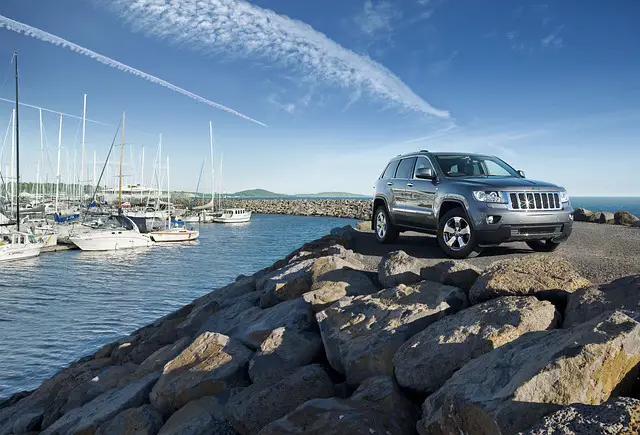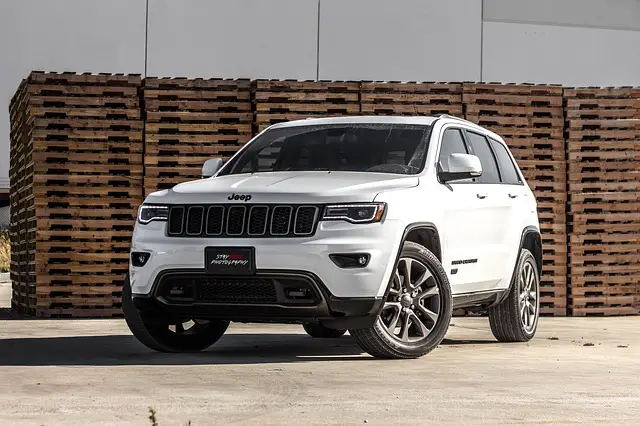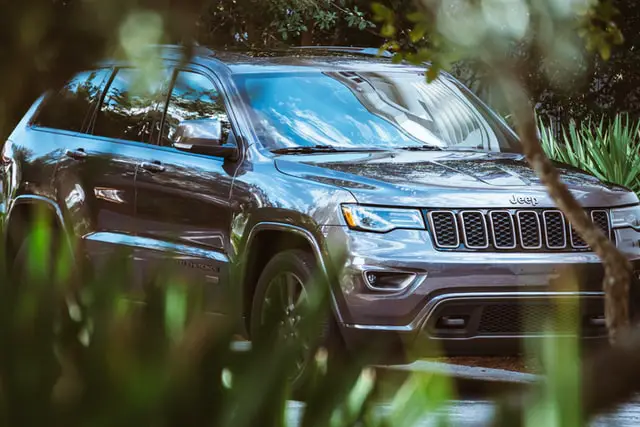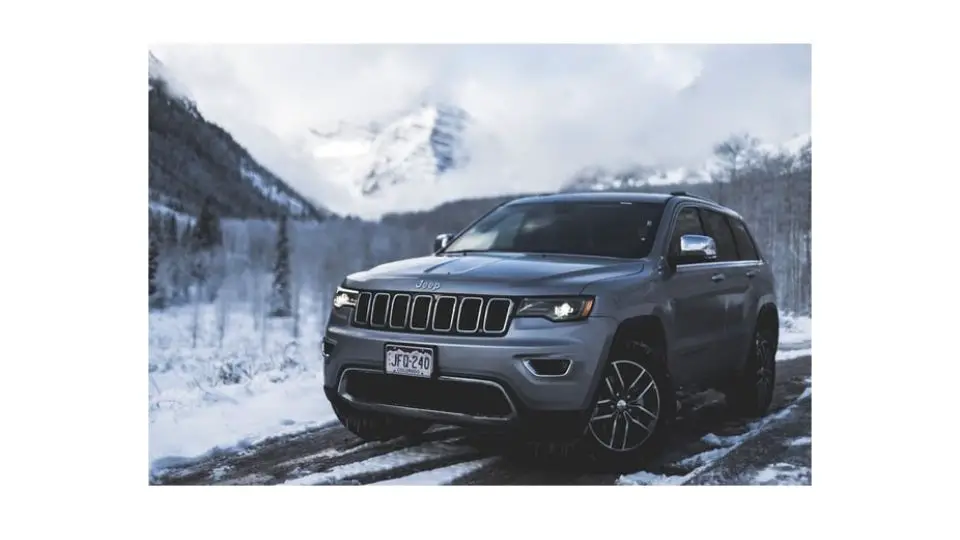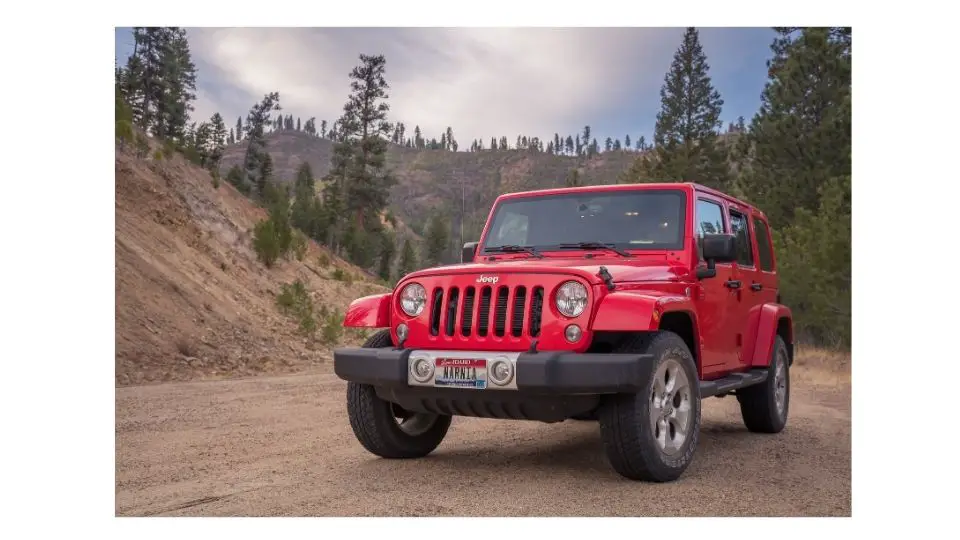Have you ever gotten frustrated by sitting in a vehicle that won’t start no matter how hard you try turning your key in the ignition?
It doesn’t matter whether you are about to leave for work, a family off-road tour, or you want to enjoy an afternoon in your Jeep Cherokee.
When the jeep refuses to start, you are left with numerous questions torturing your brain. To end your misery, we have invested hours of our time in research to help you understand why your Jeep Cherokee won’t start even when it has power.
The first of the three most common causes of this annoying problem is low battery and starter performance. The second cause is most likely a problem with the fuel system, and the third possibility is spark plug technical challenges. If you want to learn more about these causes, read through the whole of this informative article.
Possible Causes of Jeep Cherokee Not Starting
There are several reasons why you may experience power issues with your jeep. Here are the possible reasons:
1. Faulty Battery and Starter
If you try starting your vehicle and it fails, the first thing you should check is the battery’s condition and the starter. You will need a digital multimeter to measure the electrical values.
To clearly determine if the problem results from a faulty battery, You will also require a battery from a functional jeep and jumper cables to connect your jeep’s battery with an auxiliary power source.
So, with this equipment, how do you run your test? It’s quite simple, with your jeep’s key in the ignition, try switching your vehicle on.
The next thing you want to do is turning on the headlights. If you realize that the light produced is weak or, even worse, the headlights don’t turn on, then you may have a dead battery problem on your hands.
How then do you ensure that your Cherokee starts even when the battery is weak? You can easily restart the weak or empty battery using booster cables, which will help draw power from another source through jump start.
How to jump-start Your Jeep Cherokee
Make sure that the jeeps are close to each other. The faulty jeep’s hood should be close to that of the functional one to facilitate easy power-sharing when you connect the clamps.
The next step is the actual connecting of the clamps to the batteries’ terminals. At this point, it is vital to have both the failed jeep’s engine and the booster jeep’s engines turned off to avoid electrocution.
Ensuring that the clamps do not come into contact, match the red cable with the positive battery terminal and connect the black cable with the negative terminal on your jeep’s battery.
The same negative and positive cable and terminals connection should now be done to the functional jeep. It would help if you had the battery to perform at its full capacity, so you must cut off other accessories such as the air conditioning and radio from accessing battery power in both jeeps.
Allow a few minutes to pass before you begin the power-sharing. When the jeep with difficulties starts, switch on the ignition but don’t start the vehicle. Once you have made sure that there are no accessories accessing power, start the jeep and let it run for a few minutes.
Now remove the jumper cables but make sure you begin by detaching the negative clamp then move to the positive clamp. If you want to avoid having the same breakdown twice, you need to make sure that the alternator fully charges the repaired battery.
For this reason, drive the jeep around for about fifteen minutes. If you understood that the jump start is a temporary solution, you need to have the battery tested. If the mechanic confirms that your jeep’s battery has no issues, but you still have trouble starting it, you need to test the starter that might demand replacement.
Testing the Starter
The multimeter comes in handy when running a test on your jeep’s starter. First, place the multimeter on the contact wire used to connect the starter to the Cherokees battery.
With the connection intact, insert the key in the ignition and attempt to start the jeep. At this point, the wire will evidence the voltage being transmitted from the battery.
With a current flowing, which will be indicated on the multimeter, you will confirm that the starter is in good condition. However, if you hear a clicking noise as you run your test or if there is no noise at all, you need to get that starter replaced.
2. Insufficient Fuel or Faulty Fuel Pump
If both the battery and starter are in optimum conditions, you need to check if the jeep has enough fuel. Checking Jeep’s Fuel Level First, insert the key in the ignition and switch it on.
Have a look at the fuel gauge. If the fuel in your tank is low, you will know from the gauge’s indicator. It will be under the empty mark, commonly denoted with a capital E.
Your fuel gauge may be faulty in some cases, showing the wrong fuel level in your tank. If you get suspicious of this, it would be best to visit the nearest gas station for a refill.
Once you are sure of the amount of fuel in your tank, try starting the jeep. If it starts normally, then you can conclude that low fuel in your tank was the root of your misery. A solution to this problem is fuel gauge replacement to ensure that you are not misled in the future.
Diagnose the Fuel Pump
You need to remove the cap on your fuel tank and pay attention to the sound the fuel pump makes when the ignition is turned on.
This is a two-person job since you need to listen to the sound made immediately after the ignition is turned on. If you have difficulties hearing the pump, use a fuel pressure tester to check the engine is receiving enough fuel from the tank.
Keep an eye on how the pressure tester behaves when you try to start your Jeep Cherokee. If you note that there is pressure on the tester, the fuel pump is functional. On the contrary, having no pressure indicated on the tester means that the fuel pump connection is compromised.
Spark Plug Problems
Functional battery and starter, sufficient fuel, and a fuel pump that is in perfect condition but still your Jeep Cherokee won’t start, you need to check the spark plugs.
Testing Spark Plugs
First, open your jeep’s hood and figure out where the spark plug cables are housed. Detach one of the spark plug cables; using a spark plug wrench, detach the second cable.
Thoroughly examine its condition in search of even the least significant defect. If you notice that the spark plug gas is wider than it should be, have it replaced immediately.
Try New Spark Plugs
If you suspect that the spark plugs in your jeep are malfunctioning, replace them with new ones and rerun the spark plug test. To ground the spark plug, place its end on a solid metallic surface.
Putting it on this surface completes the electrical circuit. To avoid receiving an electrical shock, don’t touch the spark plug directly with your hands as you run the engine. If no sparks are produced when you run this test, then you need to visit a mechanic.
Conclusion
To sum up, a Jeep Cherokee may fail to start due to the above-discussed possible causes. Therefore, it is necessary to have your jeep regularly inspected to ensure that all its parts are operating accurately.
Hopefully, this article has given you a better understanding of the possible causes and how to handle them. Regularly take care of both the battery and starter to avoid frustrations when the jeep has difficulties starting. After a long ride or a few short rides, refueling is crucial in maintaining usable fuel levels in the tank.

